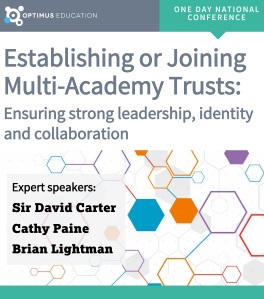Academisation has significant implications for the role of the SBM. If you place your trust in trusts, collaboration will be the key to meeting the needs of pupils.

As someone who works within a multi-academy trust (MAT), I’m eagerly watching the schools and academies that are in the process of creating, or joining existing MATs. The government’s change of direction last year has slowed the process of academisation, as research carried out by the National Foundation for Educational Research confirms.
For the first time, there is evidence that primary schools are converting at a greater rate than secondary schools. This is particularly noticeable in areas where secondary schools have already converted.
It is also the go-to option for failing schools, as identified in the reasoning behind the government's academisation strategy in 2010.
When a Commons Select Committee consulted with regional schools commissioners (RSC) last October, there was some criticism of MATs. However, the overall feeling was that they are the most effective way of fostering collaboration among academies.
Even in schools that remain under local authority control, the remit of the school business manager (SBM) will never look the same. In an academy, financial management becomes an even greater responsibility, doubtless at the expense of other things.
After all, a SBM is only one person!
For those who enjoy all aspects of the traditional SBM role, the impact of academisation presents an interesting dilemna. The nature of business management will depend very much on the trust in which you’re working. In my case, the finance aspect has been separated from the business management side. While I studied and trained to undertake the traditional responsibilities, I now find myself undertaking a finance role.
However, I’m always keen to point out that it’s nigh impossible to be a master of everything, and academisation is an opportunity to train for the aspects of school business management that you enjoy the most.
As an academy, your school essentially becomes a small-to-medium business. And in these circumstances, the responsibility for satisfying reporting and regulations falls at the door of the SBM.
The support and expertise of the local authority is no longer available, meaning that collaboration within the trust becomes the key to ensuring that you can meet all of the demands that will be placed upon you.
My own experience has been that collaboration with my colleagues has shaped my own practice.
Although it would be difficult to make a conclusive argument, I am a great advocate of all schools being tailored to the meet the needs of their pupils. If academisation is a means to such end, then all the better.
Of course MATs do not hold all of the answers, and there is still room for improvement. Plans are afoot to bring in health checks for trusts so they can identify room for growth.
Former secretary of state for education, Michael Gove, commented on the academy programme giving schools the autonomy to make improvements and increase opportunities for students.
Does the economy of scale that comes with true inter-trust collaboration offer the necessary environment for this to happen?
To some extent I think it does, but the jury's still out.
 Establishing or joining MATs
Establishing or joining MATsFollowing its success in London, we’re bringing the Establishing or Joining Multi-Academy Trusts event to Leeds.
It's the only event that will provide legal and practical information on the process of joining or forming a MAT and factual, unbiased guidance on the different models available.
Reserve your place now!